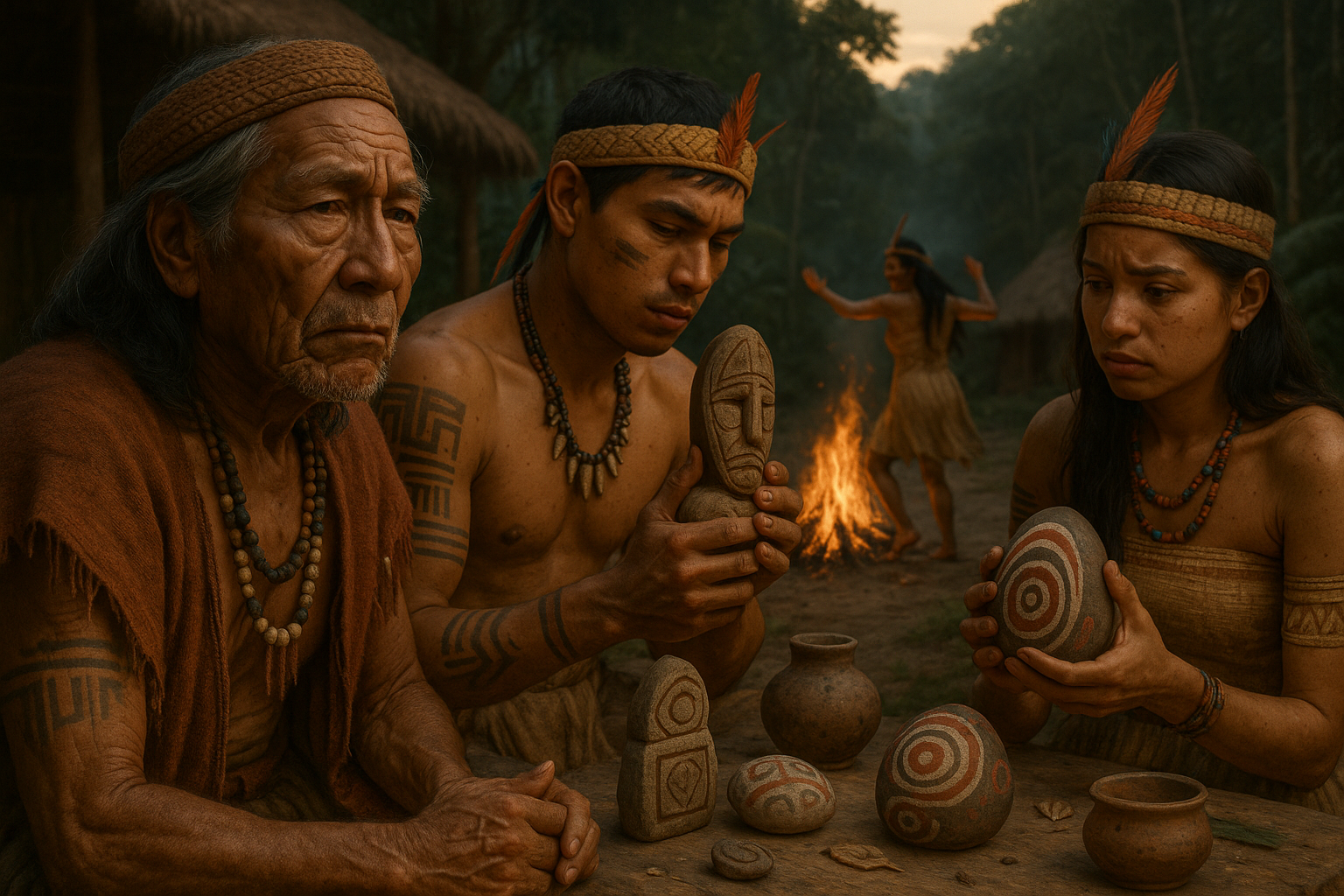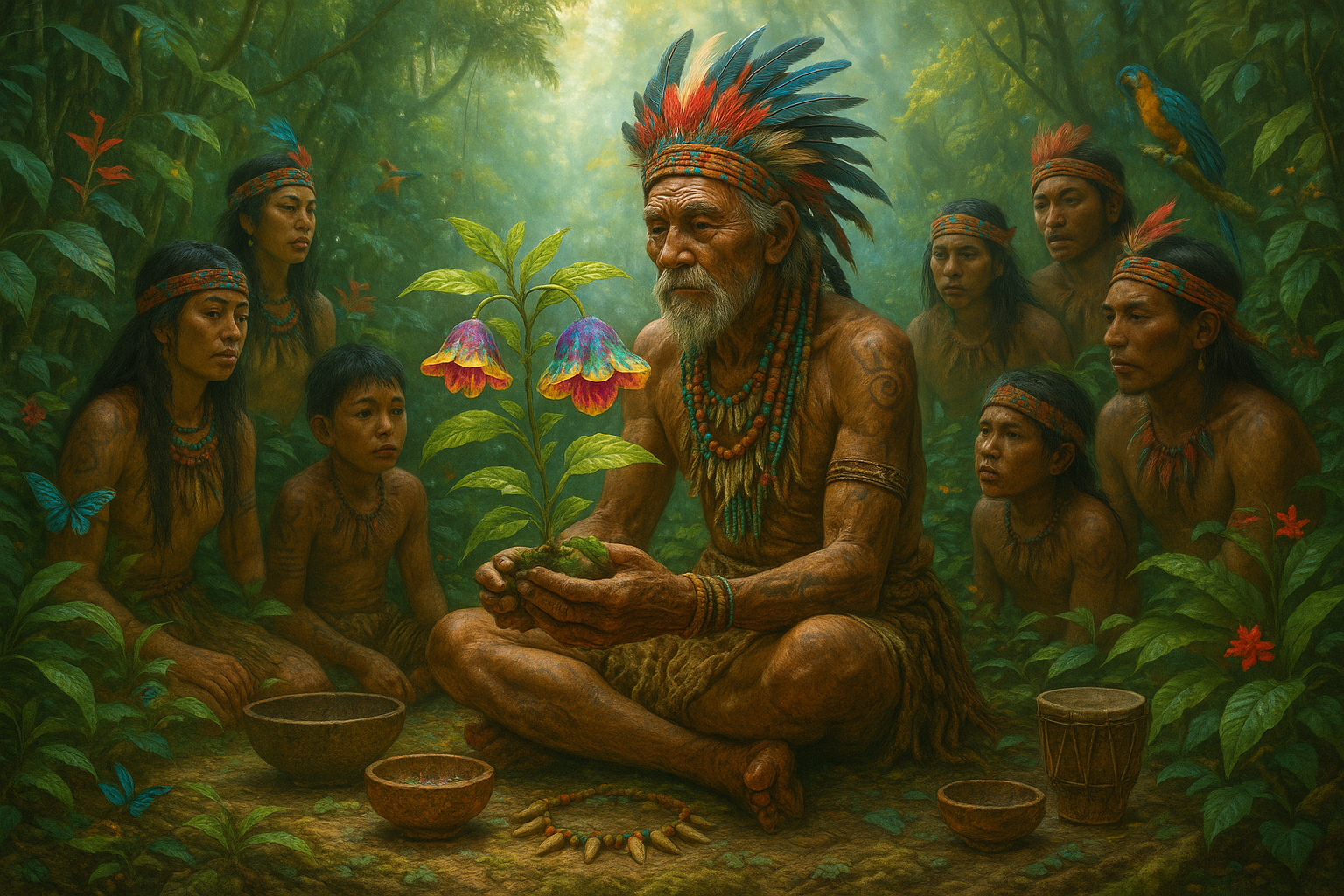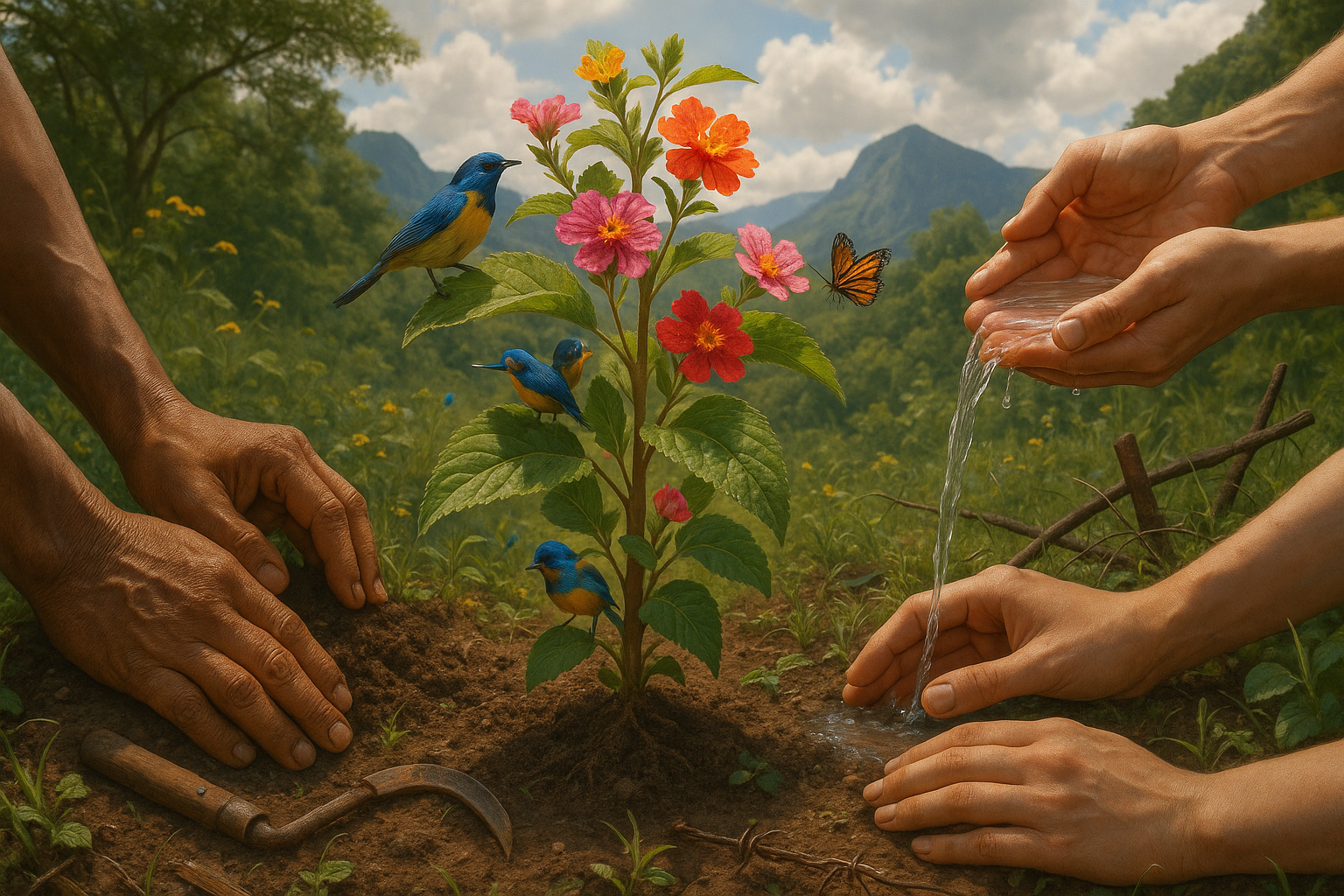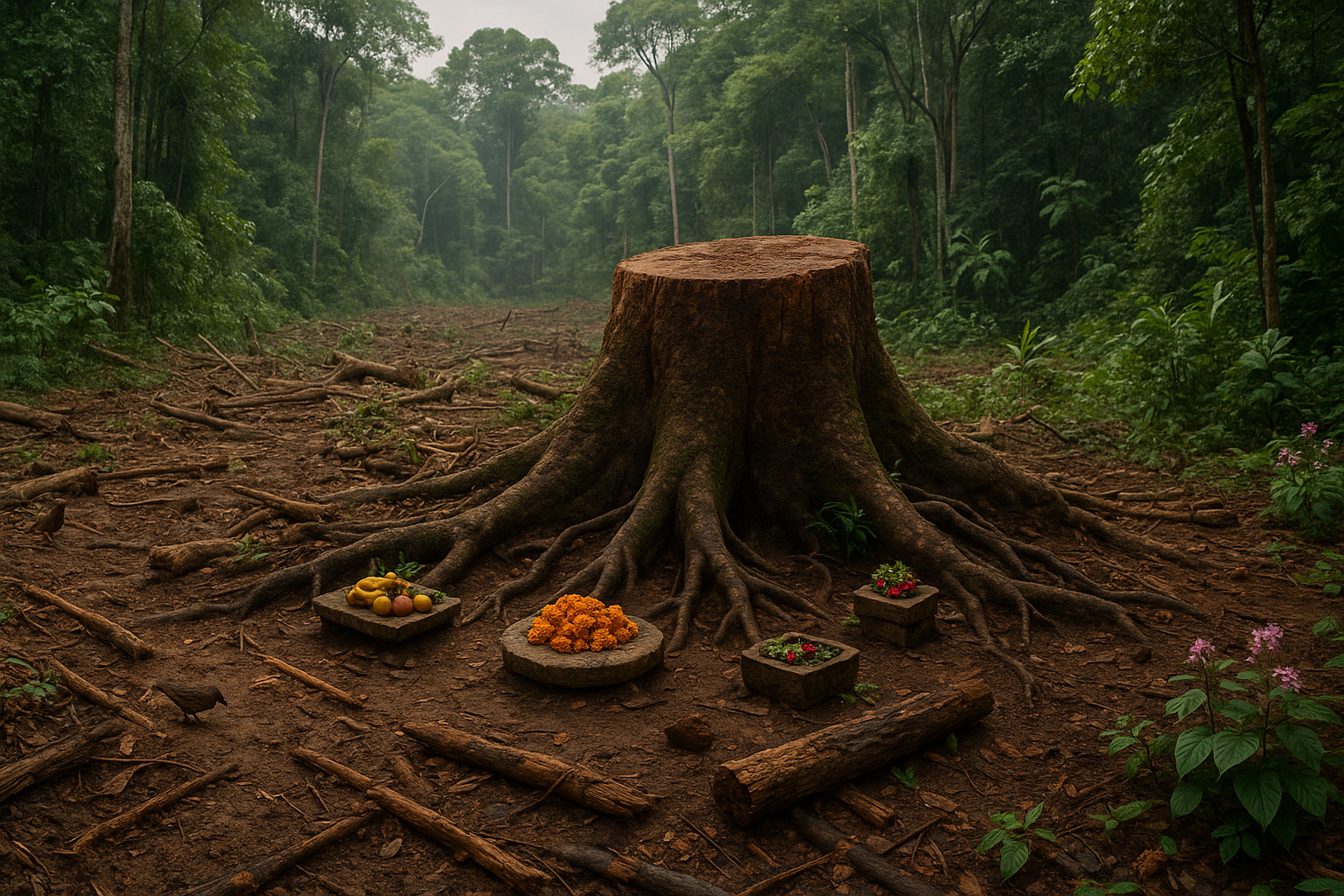In a world increasingly dominated by synthetic solutions and quick fixes, the allure of ancient herbal remedies offers a refreshing alternative. 🌿 The Herbs of the Dead might sound ominous, but don’t let the name mislead you. These plants have been revered across various cultures for their mystical properties and healing potential. They hold secrets passed down through generations, echoing the whispers of ancient wisdom and the promise of holistic wellness.
What are these Herbs of the Dead, and why should you care? The term encompasses a variety of plants traditionally used in rituals to honor the deceased and facilitate communication with the spiritual realm. Yet, their powers extend beyond the ceremonial. Modern science is beginning to uncover what ancient healers long knew: these herbs can be powerful allies in promoting health and well-being. From relieving anxiety to boosting immunity, their applications are vast and varied.
In this article, we will journey into the world of these mystical plants, exploring their origins, cultural significance, and the scientific research that supports their use. As we delve into their stories, you’ll discover how these herbs can be integrated into contemporary wellness practices, offering natural solutions to some of today’s most pressing health challenges.
Unraveling the Mysteries of Ancient Traditions
Herbal medicine has been the cornerstone of healing practices in many ancient civilizations. From the Egyptians and the Greeks to the Indigenous peoples of the Americas, herbs have been used not only to heal the body but also to nourish the soul. The Herbs of the Dead are steeped in this rich tapestry of tradition. Their historical uses in rituals and healing practices provide a fascinating backdrop to their potential in modern medicine.
We’ll explore how these herbs were utilized in ancient ceremonies and what roles they played in different cultures. You’ll gain insights into the spiritual beliefs that underscored their use and how these beliefs continue to influence herbal practices today.
Bridging the Gap: Traditional Wisdom Meets Modern Science
As interest in natural and holistic health solutions grows, researchers are turning their attention to these ancient herbs with renewed interest. Recent studies have begun to uncover the biochemical compounds that give these plants their remarkable properties. From anti-inflammatory and antioxidant effects to mood enhancement and cognitive support, the scientific community is beginning to validate what traditional healers have known for centuries.
We’ll delve into the latest research, highlighting key findings and discussing their implications for modern health practices. By understanding the science behind these herbs, you’ll be better equipped to harness their potential in your own life.
Practical Applications for Modern Healing
The true power of the Herbs of the Dead lies in their versatility and accessibility. Whether you’re a seasoned herbalist or a curious newcomer, these plants offer something for everyone. We’ll provide practical tips on how to incorporate these herbs into your daily routine, from teas and tinctures to essential oils and salves.
You’ll learn how to use these herbs to address specific health concerns, such as stress, insomnia, and immune support. We’ll also explore their potential role in enhancing mental clarity and emotional balance. With practical advice and easy-to-follow recipes, you’ll find it simple to begin your own journey with these ancient allies.
The Ethical and Sustainable Path Forward
As we embrace these herbal remedies, it’s essential to do so with mindfulness and respect for the traditions they come from. Ethical sourcing and sustainable practices are crucial to preserving these valuable resources for future generations. We’ll discuss how to choose high-quality herbs and support sustainable suppliers, ensuring that your healing journey is not only beneficial to you but also to the planet. 🌍
In this exploration of the Herbs of the Dead, we invite you to rediscover the ancient powers of nature. As you engage with these mystical plants, you’ll not only tap into a legacy of healing but also contribute to a movement that values the earth and the wisdom it holds. Ready to unlock the secrets of these ancient remedies? Let’s begin this transformative journey together.
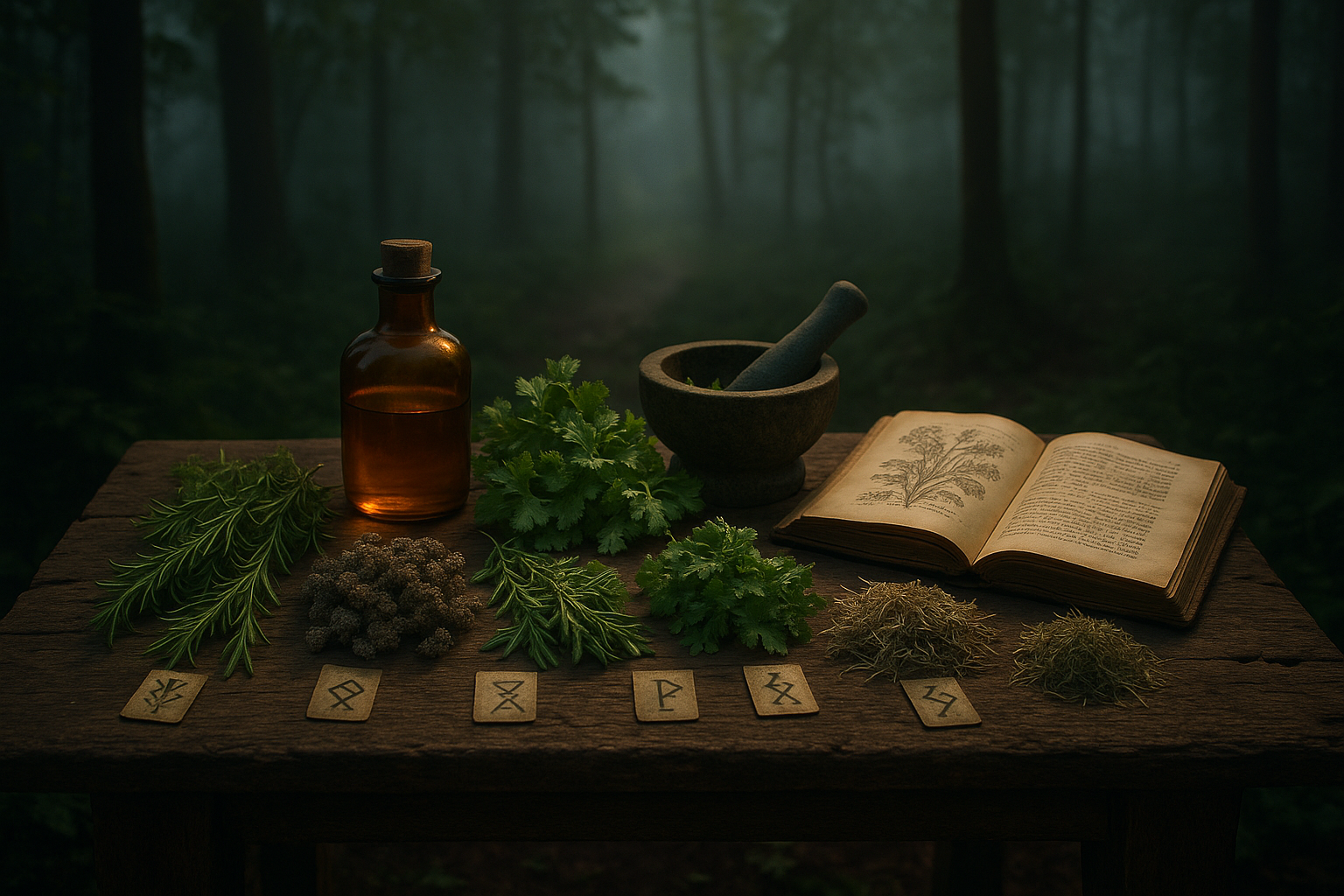
Conclusion: Embracing the Timeless Wisdom of Ancient Remedies 🌿
In our journey through the mystical realm of the “Herbs of the Dead,” we have explored a fascinating tapestry of historical knowledge, cultural significance, and modern applications. By understanding the profound impact these herbs have had on ancient civilizations and their potential to address contemporary health challenges, we open a gateway to holistic wellness and deeper connections with nature.
Throughout the article, we delved into the rich history of these sacred plants, uncovering their ceremonial uses and therapeutic properties that have been revered for centuries. From ancient Egypt to the indigenous tribes of the Americas, herbs like sage, rosemary, and wormwood have been pivotal in rituals and healing practices, embodying a bridge between the spiritual and the physical realms.
We also highlighted the scientific validation of many of these age-old remedies. Modern research has begun to catch up with traditional wisdom, providing evidence for the efficacy of these herbs in treating ailments ranging from inflammation to anxiety. The resurgence of interest in herbal medicine is not just a trend but a testament to the enduring legacy of these natural healers.
Moreover, we discussed practical ways to incorporate these herbs into our daily lives. Whether through teas, essential oils, or holistic treatments, the “Herbs of the Dead” offer versatile and accessible solutions for enhancing well-being. By integrating these practices, we can cultivate a lifestyle that honors both our health and the planet.
The importance of rediscovering and preserving this ancient knowledge cannot be overstated. In a world increasingly dominated by synthetic pharmaceuticals, the gentle yet powerful effects of natural remedies provide a crucial alternative. They encourage us to take responsibility for our health and foster a more sustainable and mindful approach to living.
As you reflect on the insights shared in this article, consider how you can apply this wisdom in your own life. Perhaps you will be inspired to start your own herb garden, explore herbal teas, or learn more about the cultural histories of these plants. Every small step towards embracing natural healing is a step towards a healthier future.
We invite you to share your thoughts and experiences in the comments section below. How have herbs played a role in your wellness journey? What ancient remedies have you found particularly effective? Your insights and stories are invaluable to building a community of like-minded individuals passionate about holistic health.
Additionally, feel free to share this article with friends and family who may benefit from the transformative power of herbs. Together, we can spread awareness and appreciation for these timeless treasures of nature.
For further reading and exploration, check out these resources:
- The Role of Herbal Medicine in Modern Society
- Pharmacological Insights into Herbal Remedies
- American Botanical Council
In conclusion, the “Herbs of the Dead” offer more than just remedies; they provide a profound connection to our ancestors and the natural world. By unlocking their mystical powers, we not only heal our bodies but also enrich our souls. Let us cherish and harness these ancient remedies for a healthier, more harmonious life. 🌺
Thank you for joining us on this enlightening exploration. Stay curious, stay healthy, and continue to seek the wisdom that nature has to offer.
Toni Santos is a botanical symbolist and ritual ethnobotanist specializing in the study of coded plant symbolism in ceremonial contexts, extinct ritual flora, forbidden botanical practices, and the mythical plants woven into folklore traditions. Through an interdisciplinary and symbol-focused lens, Toni investigates how humanity has encoded ritual knowledge, sacred prohibitions, and mythic memory into the botanical world — across vanished ceremonies, forbidden gardens, and legendary tales. His work is grounded in a fascination with plants not only as ritual subjects, but as carriers of encoded ceremonial meaning. From extinct ritual flora practices to mythical plants and coded botanical symbols, Toni uncovers the visual and symbolic tools through which cultures preserved their relationship with the sacred, the forbidden, and the legendary vegetal unknown. With a background in ritual semiotics and ethnobotanical symbolism, Toni blends visual analysis with archival research to reveal how plants were used to encode ritual identity, preserve forbidden knowledge, and transmit mythological narratives through symbolic forms. As the creative mind behind tromvan.com, Toni curates illustrated ritual taxonomies, symbolic plant interpretations, and speculative folklore studies that revive the deep ceremonial ties between flora, forbidden practices, and mythical traditions. His work is a tribute to: The vanished ceremonial flora of Extinct Ritual Plant Traditions The prohibited practices of Forbidden Botanical Rituals and Cultivation The legendary presence of Mythical Plants in Folklore The layered ritual language of Coded Plant Symbolism in Ceremonies Whether you're a ritual historian, symbolic folklore researcher, or curious seeker of forbidden botanical wisdom, Toni invites you to explore the hidden roots of plant symbolism — one extinct ritual, one mythical leaf, one coded symbol at a time.

